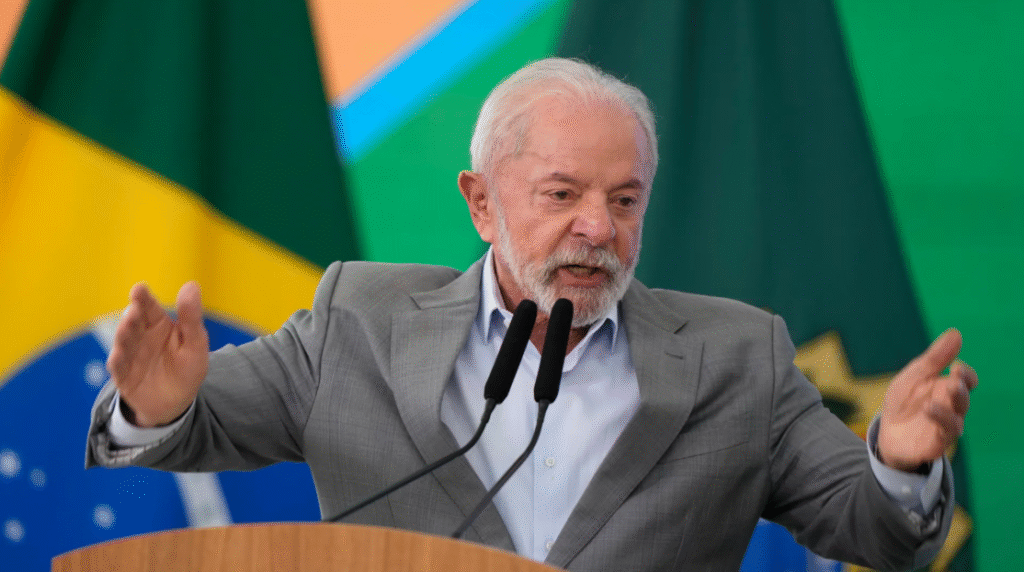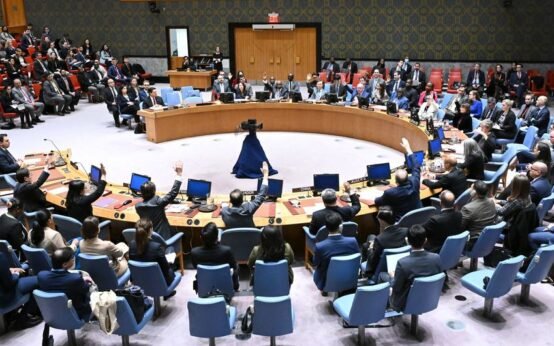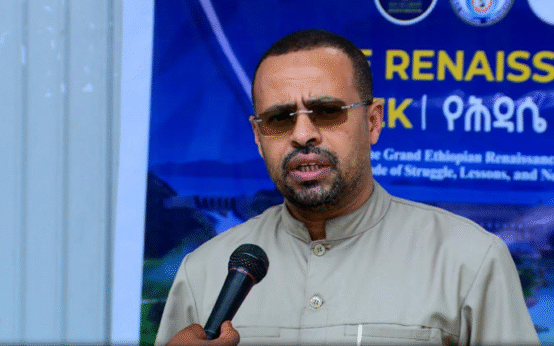Relations between the United States and Brazil have fallen to their lowest point in decades. What started as a disagreement over politics has now grown into a major trade and diplomatic conflict. At the center of this fight is former Brazilian President Jair Bolsonaro, who is facing serious legal troubles in his home country.
U.S. President Donald Trump stepped into the matter by placing 50% tariffs on many Brazilian goods entering the U.S. He said this action was needed because Brazil’s courts are treating Bolsonaro unfairly. Brazilian President Luiz Inácio Lula da Silva strongly rejected this reasoning, saying his country’s courts are independent and that no foreign government has the right to interfere.
Trump’s Tariffs Connect Trade to Bolsonaro’s Court Cases
President Trump shocked Brazil when he announced that goods such as steel, soybeans, and meat would face new 50% tariffs at the U.S. border. Normally, tariffs are linked to economic or trade disputes, but this time the decision was tied directly to politics.
Trump argued that Bolsonaro, who is on trial for allegedly plotting to overturn Brazil’s 2022 election, is being unfairly targeted by Lula’s government and Brazil’s Supreme Court. He described the trial as a “witch hunt” and said the U.S. could not stand by while a close ally was treated this way.
For Brazil, this was an unacceptable move. Lula responded quickly, making it clear that the country’s judicial system would continue its work without interference. He said Brazil will not negotiate under threats or pressure, even if it means losing access to the U.S. market.
Brazil Responds with $5.5 Billion Export Support Plan
Instead of retaliating with its own tariffs, Brazil chose another strategy. Lula’s government announced a huge support package worth 30 billion reais about $5.5 billion to help Brazilian exporters survive the trade barriers.
This money will come in the form of low-interest loans, tax breaks, and government purchases of goods that exporters cannot sell abroad. The package will be delivered through Brazil’s state development bank, BNDES.
The idea is simple: keep companies alive during this crisis, protect jobs, and reduce the impact on farmers, manufacturers, and transport workers who depend on trade with the U.S. Lula called it a “defensive shield” that will give exporters time to find new markets.
The trade fight quickly spilled into diplomacy. Brazil’s foreign ministry summoned the U.S. chargé d’affaires the top U.S. diplomat in the country after the ambassador left to protest a social media post made by the U.S. Embassy.
Eduardo Bolsonaro Pushes Washington for Sanctions
While Lula’s government worked to defend Brazil’s independence, Jair Bolsonaro’s son, Eduardo Bolsonaro, traveled to Washington, D.C. There, he met with the U.S. Treasury Secretary to push for sanctions on Brazilian judges, especially Alexandre de Moraes.

This move was viewed in Brazil as deeply provocative. Eduardo was lobbying against his own country’s institutions while his father faced trial at home. Meetings between Brazilian officials and U.S. leaders were canceled in protest, worsening the diplomatic chill.
For many in Brazil, it seemed that Trump and Eduardo Bolsonaro were working together against Lula’s government. This perception has made the dispute even more personal and emotional.
Brazil Turns to BRICS and Diversified Trade
Instead of escalating with direct retaliation against the U.S., Lula turned to diplomacy and long-term strategy. He reached out to Brazil’s BRICS partners China, Russia, India, and South Africa for stronger trade and political cooperation.

Economists believe this strategy can soften the blow of U.S. tariffs. Brazil is already a major exporter of soybeans and beef to China, and those markets may expand further. Still, the loss of U.S. access will hurt industries like steel and manufacturing, which rely heavily on the American market.
By turning to BRICS and other emerging economies, Lula hopes to show that Brazil is not isolated and that it has powerful friends who can support it during this crisis.


 International Support for Morocco’s Autonomy Plan at UN Assembly
International Support for Morocco’s Autonomy Plan at UN Assembly  Canadians Pull Back from U.S. Trips Amid Border Backlash
Canadians Pull Back from U.S. Trips Amid Border Backlash  US vetoes UN Security Council resolution on Gaza ceasefire
US vetoes UN Security Council resolution on Gaza ceasefire  Pakistan Demands Urgent UN Action to End Gaza Crisis
Pakistan Demands Urgent UN Action to End Gaza Crisis  Ethiopia’s GERD Diplomacy Inspires African Nations
Ethiopia’s GERD Diplomacy Inspires African Nations  South Korea-U.S. nuclear agreement revision gains consensus
South Korea-U.S. nuclear agreement revision gains consensus